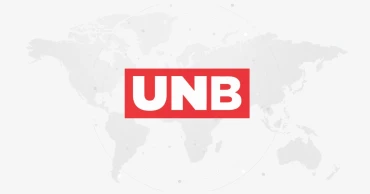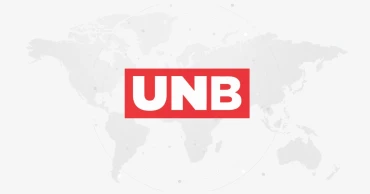US visa restriction policy
US visa restrictions: State Dept spokesperson once again refrains from mentioning media
The United States has reiterated that it does not support any particular party and does not want to influence the outcome of the election in Bangladesh.
The US only wants to ensure that the people of Bangladesh can freely choose their leaders.
“So, let me restate or state in slightly different language what I said last week, which is the United States wants what the Bangladeshis themselves want: free and fair elections that are conducted in a peaceful manner,” US State Department Spokesperson Matthew Miller said during a regular media briefing in Washington on October 2.
He, however, once again refrained from mentioning visa restrictions on media. US Ambassador in Dhaka, Peter Haas, during a recent TV interview had mentioned possible visa restrictions on media.
Read more: Eminent citizens voice disappointment over US ambassador’s remarks on visa restrictions against media
During the US State Department briefing, a questioner said that radical groups that advocate “Taliban-style rule” in Bangladesh along with opposition leaders, have hailed the US ambassador’s remark on including media under the visa restrictions, and have already threatened media persons, circulating a list of journalists who have been critical of radical views.
On the other hand, rights activists, anti-war crimes campaigners, editors, writers, minority community leaders found the statement by the US ambassador on possible visa curbs on media to be an “affront to freedom of press” that has been pivotal to the fight against terror, the questioner added.
He asked the State Department spokesperson whether the US supports the statement of the ambassador and denies the concerns raised by such a large group of liberals.
Miller did not give a direct response, but said that the government, political parties, civil society, and the media in Bangladesh have all expressed their desire that the upcoming national election be free and fair and conducted in a peaceful manner – “as we want.”
Read more: No discussion held on visa policy with US Assistant Secretary Bitter: Acting FS
“The visa restriction policy that we’ve announced supports this objective and the desire of the people of Bangladesh to freely choose their leaders,” he said.
2 years ago
US visa restrictions: State Dept spokesperson refrains from mentioning media
Though US Ambassador Peter Haas mentioned inclusion of media in the visa restriction policy for Bangladesh, the United States Department of State refrained from mentioning media.
“I will say that, as we noted when we announced these new visa restrictions on Friday, they include – they include both members of law enforcement, the ruling party, and the political opposition,” US State Department Spokesperson Matthew Miller said during a regular media briefing on September 25.
He also said when the US Secretary of State announced the new visa policy in May, the purpose was not to take a side, but to ensure or to support free, fair, and peaceful national election in Bangladesh.
Chief Justice rails against US visa policy on last working day
Responding to a question specifically on the inclusion of media in the visa restrictions, the State Department spokesperson said: “I think what we have said, and we – so we have not announced because visa records are confidential – we have not announced the specific members or the specific individuals to which this will apply, but it made clear that they will apply to members of law enforcement, the ruling party, and the political opposition.”
Clarifying the issue after US Ambassador Peter Haas’ remarks, the US Embassy in a Facebook post on Monday said, “We are applying the [visa restriction] policy in a balanced way against anyone [undermining the democratic election process in Bangladesh] – regardless of being pro-government, opposition party, members of law enforcement agencies, members of the judiciary, or media persons.”
Image of police won’t be affected due to US Visa policy: IGP
US Embassy Spokesperson Bryan Schiller said the visa restriction policy can be applied to anyone “found to be undermining” democratic elections in Bangladesh.
“This could include vote rigging, intimidating voters, use of violence to prevent people from exercising their rights to freedom of association and freedom of peaceful assembly, and the use of measures designed to prevent political parties, voters, civil society, or the media from participating in the electoral process or expressing their views,” he told UNB while responding to a question.
Responding to a question on BNP Chairperson Khaleda Zia’s release and treatment abroad, US State Department Spokesperson Miller said, “I just don’t have any comment on that.”
What could be the possible reasons to apply US visa restrictions against someone?
2 years ago



